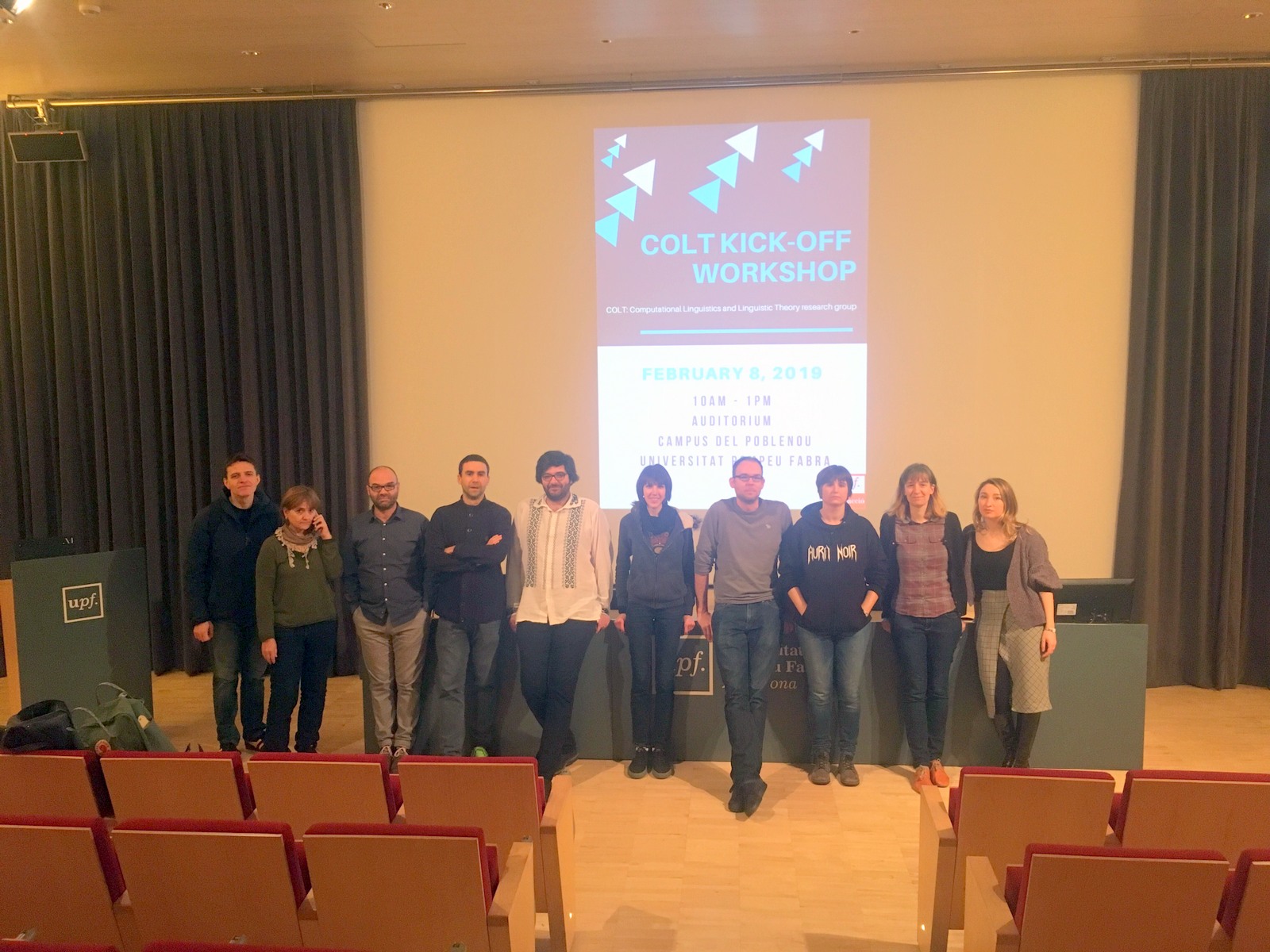COLT, a new research group led by researcher Gemma Boleda
At the Department of Translation and Language Sciences, the Computational Linguistics and Linguistic Theory research group focuses on the study of language from an interdisciplinary perspective, straddling linguistics, artificial intelligence and cognitive science. The group was launched on 8 February with a seminar in the auditorium of the Poblenou campus.

On Friday, 8 February, in the auditorium on the UPF Poblenou campus a seminar was held to mark the beginning of a new research group in the Department of Translation and Language Sciences (DTCL): the Computational Linguistics and Linguistic Theory (COLT) research group led by researcher Gemma Boleda.
COLT focuses on the study of language and combines traditional methods in theoretical linguistics with quantitative and computational methods, particularly machine learning techniques from the field of Artificial Intelligence.
Gemma Boleda leads a team of researchers including senior researchers such as Marco Baroni, who recently joined the DTCL as an ICREA research professor and who mainly studies the compositionality of language, that is, the mechanisms whereby the meanings of the words that make up a sentence are combined; Rafael Marín, director of the Catalan Foundation for Research and Innovation, and Maria Teresa Melero, a researcher of the Language Technologies Plan of the Secretariat of State for Digital Advancement of the Spanish Ministry of Economy and Business, as well as post-doctoral, doctoral and visiting researchers.
Two international projects: AMORE and MAGIC
Currently, they are working on two international research projects. A Distributional Model of Reference to Entities (AMORE) explores reference in natural language using computer models. Its main goal is to understand how people use language to refer to reality, emphasizing the interaction between the conceptual system and the extralinguistic context.
One of the main goals of artificial intelligence is to build artificial agents that can interact with humans using natural language. To fully master language, the agents need to know how to use it to accomplish a goal; to interact with other speakers; and to refer to the objects in the external reality. Multimodal Agents Grounded via Interactive Communication (MAGIC), led by Elia Bruni, aims to equip an artificial agent with all these skills in a single learning framework.
A collaborative project between science and art of the VERTIGO STARTS programme
COLT has recently participated in a collaborative project between science and art of the VERTIGO STARTS programme, funded by the European Union: An artist in residency, Blueprints for an Emergent Personality, in which the artist Theo (Kate Aspinall) was inspired by the computer models of the AMORE project to create a series of graphic works. This collaboration will be presented this March at the Centre Pompidou in Paris as part of the STARTS Residencies Days.
